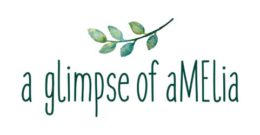What does GOTS certified mean?
What does GOTS certified mean?
Having one common standard means textile processors and manufacturers can export their fabrics and garments with one organic certification that is accepted in all major markets.
Anyone who intends to sell, label or represent any textile product with the trademark registered GOTS logo, with GOTS labelling and/or any other reference to GOTS (certification) must first ensure that they meet the respective criteria and licensing conditions of the Global Organic Textile Standard Program. The GOTS logo can only be applied to the final product if ALL stages comply with the GOTS criteria. Therefore, all processors, manufacturers, and traders of textiles need to be certified.
The GOTS quality assurance system requires that beyond the entire processing and manufacturing chain (from post-harvest handling up to sewing, packing and labelling) also B2B traders (traders that sell to other businesses such as importers exporters or wholesalers) must participate in the inspection and certification program before the final products can be labelled as GOTS certified. This is to ensure credible and consistent product assurance to end consumers.
Although traders do not modify goods, they buy and sell organic textile products and represent a crucial link in maintaining transparency and traceability in the value chain. The certification of traders is based on verification of their product flow documentation. Certifiers trace the quantity of organic textile products by comparing the amount of purchased with sold GOTS certified textiles to ensure that all products that are sold with GOTS certification claims are correctly certified. The requirement for traders to be certified also ensures that they are aware of the documentation required to verify the authenticity of GOTS certified products thus helping to ensure the integrity of GOTS goods.
In principle the GOTS Label contains the license number of the certified entity which applies the GOTS Labelling.
Traders that have an annual turnover of less than 20.000 € of GOTS certified goods are exempt from the certification obligation, provided that they do not (re-)pack or (re-)label GOTS Goods. However, such traders must register with an approved certifier and must inform them immediately if their annual turnover of GOTS labelled goods exceeds 20.000 €.
However, a buyer who is a certified entity itself and who wishes the GOTS labelling to be applied by his supplier, may request that the labelling includes its license number. It is possible to trace the identity and other data of a certified entity by entering the license number into the ‘free text field’ of our certified suppliers database. In the case of a KMART garnet, it has the CU identification label on the GOTS sticker for tracking.
To ensure that the products of a specific delivery (shipment), received by a certified supplier, are GOTS certified, the supplier should also be asked for a ‘Transaction Certificate’, issued by the GOTS certifier of the supplier that lists the product and shipment details of the applicable delivery.
Any claim to be compliant to GOTS as the worldwide leading textile processing standard is invalid until an independent Certification Body has checked through a set of inspection methods and attested through formally issued certification documents that a product and its processor, manufacturer or trader is, indeed, GOTS compliant.
There are two types of such certification documents: Scope Certificates (SCs) which prove that a supplier meets all criteria to be allowed to process GOTS goods and Transaction Certificates (TCs) which attest that a specific shipment of products sold by a Certified Entity is GOTS certified. The Certification Body of the supplier issues a Transaction Certificate.
* Products carrying GOTS logos contain the credible assurance of organic origin of the product, as well as environmentally and socially responsible processing.
* The entire organic supply chain is covered, from harvesting to manufacturing and trading, delivering credible assurance to end consumers
Now if you go and buy a $3 organic T-shirt from Kmart, Target, Best and Less, common sense will say someone hasn’t been paid a whole lot of money to make this, have they? To be GOTS certified organic, this strict labelling must adhere to textile and ethical labour conditions in textile manufacturing. GOTS mandates fair remuneration for workers. The wages must meet basic needs and employers need to provide some discretionary income. In addition, there must be no deductions from wages used as a disciplinary measure.
Lastly there are concerns about organic items being imported from other countries into Australia and being fumigated upon arrival into Australia using the dangerous and toxic Methyl Bromide.
This is a very common treatment fumigation method for Australian quarantine, however it’s not an allowable input under organic standards, so that organic products would lose their organic status and are not allowed to be sold as certified organic. GOTS are very strict about upholding their strict certifications. An alternative to Methyl Bromide is Carbon Dioxide and a number of organic operators use this as a method for controlling pests. Cold storage can also be another option. Keeping items at -18° for a period of 7 days however this does not treat all pests.
In Australia the word ‘organic’ is not regulated. The wording ‘certified organic’ is regulated and does not need to meet the requirements for certification. A product that simply makes the claim ‘organic’ may not meet this requirement. So, consumers should always look for a recognised certification logo such as the ACO ‘bud’ logo or the GOTS certified label.

